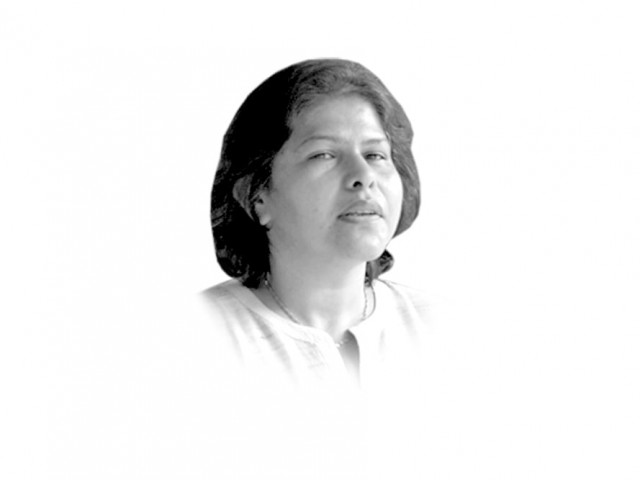The age of hyper-extremes
Rise in Islamism is more than what can be resolved through war machinery or through client regimes in Muslim states.

So, the primary legacy of this century, which has just begun, is right wing ideology. In many ways, this is a tougher call because what we are witnessing at this juncture is a clash between two right wing ideologies — one laced in the traditional right-wing-nationalist paradigm and the other, in a right-wing-nationalist-religious paradigm. This is what Pakistani author Tariq Ali called “the clash of fundamentalisms”.
This clash also indicates a crisis of global capitalism and its inability to recreate or repackage itself in a manner which would stop global conflict, especially when Frances Fukayama thought that the end of the Cold War indicated the “end of history”. With the present economic depression, the conflict will increase and the situation will become more volatile.
The main battle, of course, will be between the western-dominated free world and forces of Islam. This contest is different from what we saw between capitalism and communism, due to the fact that the latter managed to find an epicentre for itself in the form of the former Soviet Union, which was both good and bad. While communism managed to consolidate itself through the Leninist model, it suppressed the growth of socialism in the rest of the world.
Referring to forces of Islam, it has still not managed to find an epicentre. In many ways, this may be far more potent a threat, as it is difficult to locate and has begun to threaten places like the ageing Europe, which is struck by both an economic depression and Islamic fundamentalism that packages itself as an ideology with a left agenda: al Qaeda is against America’s global supremacy. However, the al Qaeda philosophy is as right as Hitler’s fascism. In fact, it is similar to European fascism.
Al Qaeda is more than an organisation. It is a peculiar ideology connected with a network, which is in search of an epicentre and packages its desire for redistribution of power and global resources in religious garb. Western liberalism, which had come under tremendous stress between the two world wars, is facing a lot of tension, especially in Muslim countries and amongst the Muslims of the world in general. Different resistance movements such as Palestine, Chechnya, Bosnia or Kashmir are viewed by many as instances of American-Judo-Christian imperialism, which must be fought through militant empowerment of Islam. Furthermore, there is a deep-set resentment against the ruling elite that is seen as a stooge of the US or other western states.
A major problem is that a lot of local power imbalance issues, in various states, are finding a platform in religious ideology, with little intellectual ability to differentiate between the two. The merging of the local with the ideological also means that issues of local nature tend to get projection as a global ideological phenomenon. One of the best examples in Pakistan relates to the reaction to Aasia Bibi’s case and the blasphemy law. What started off as a contest in a local community was soon blown out of proportion and presented as a case of some western conspiracy against Islam. The suggested recipe of those described as ‘Islamists’ is violent encounter with the rival. They also suffer from an inability to question their own assumptions because these ideas are presented as having holy sanction. From this perspective, religious fascism is far more lethal than political fascism in Europe.
Similarly, there is an absence of appreciation in the West that the rise in Islamism is more than what can be resolved through the war machinery or through client regimes in Muslim states.
Published in The Express Tribune, January 23rd, 2011.















COMMENTS
Comments are moderated and generally will be posted if they are on-topic and not abusive.
For more information, please see our Comments FAQ